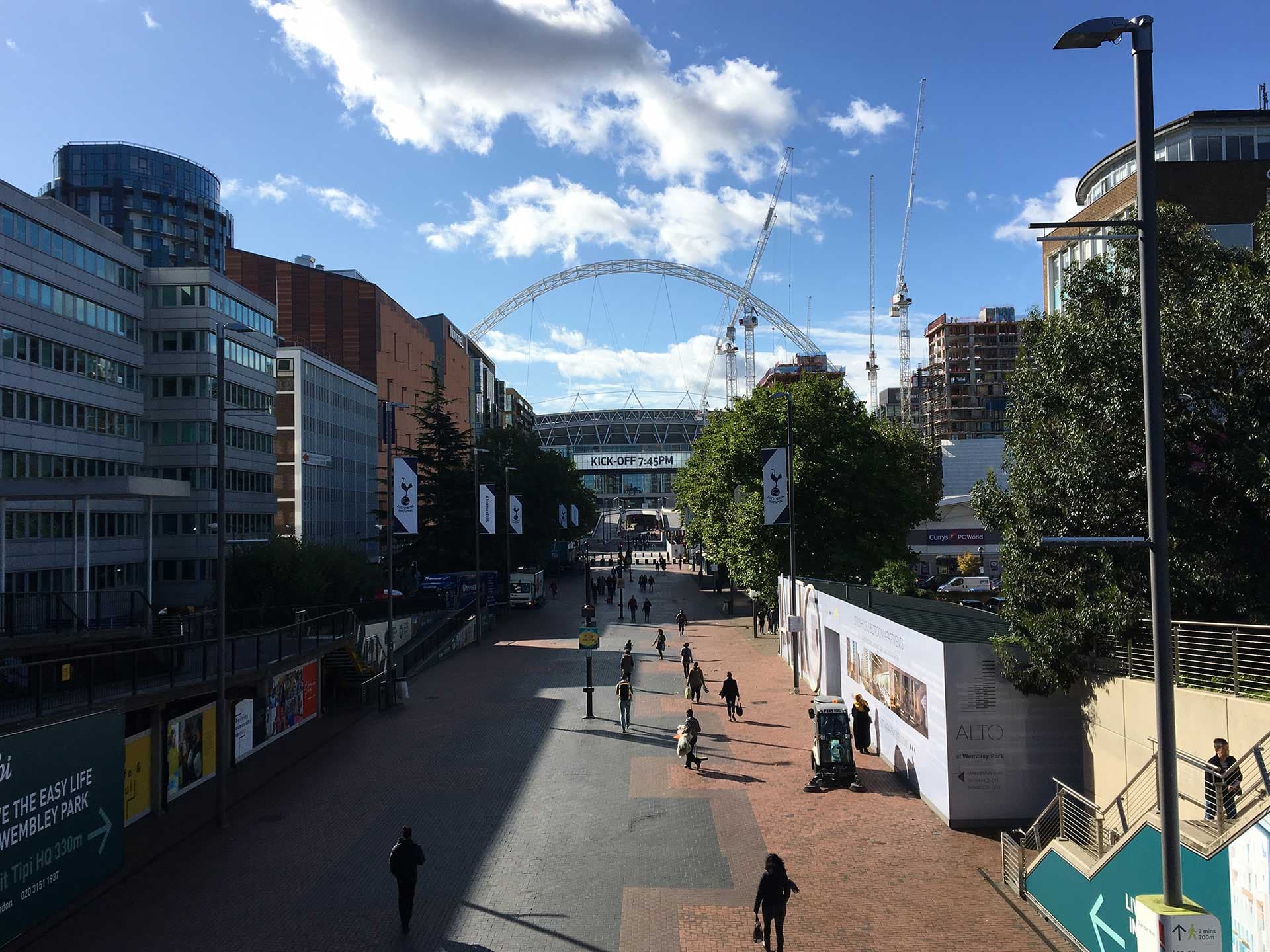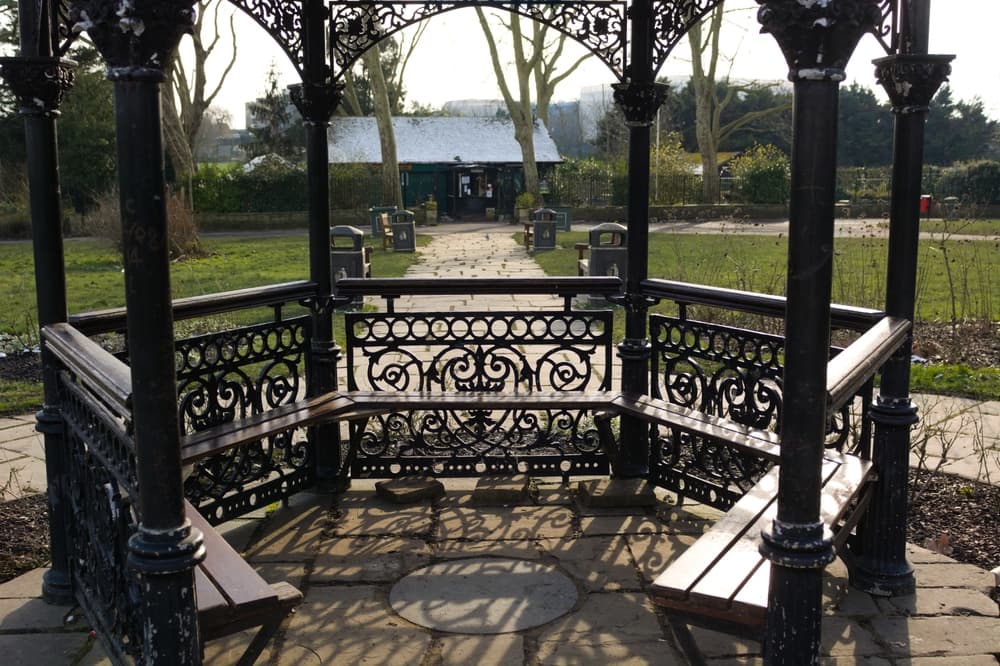
Located in the London Borough of Brent, Wembley became part of Greater London in 1965. It is a large suburb in northwest London, England, 8 miles (13 km) northwest of Charing Cross. It includes the neighbourhoods of Alperton, North Wembley, Preston, Sudbury, Tokyngton, and Wembley Park. Wembley’s name is derived from Old English “Wemba” and “lea”, which means meadow or clearing.
Wembley was a rural area until the nineteenth century. Wembley generally contains eight primary green spaces, all of which are open to the public except for the golf course (no farms or private parks exist). The official five are King Edward VII Park (10.5 hectares), which was established in 1914 just north of the centre, Barham Park (10.5 hectares), One Tree Hill Park, Sudbury Green, and Brent River Park / Tokyngton Recreation Ground (20.26 hectares), which has been restored, reverting the river to a more natural path. The informal trio consists of Horsenden Hill, the sports complex at Vale Farm (30 hectares), and partially horse-grazed Barn Hill (19.9 hectares), which is followed by Fryent Country Park in Kingsbury to the east.

A towpath from Sudbury Golf Course leads into the heart of London and borders the Grand Union Canal’s Paddington Arm. There is a clubhouse, indoor squash courts, and outdoor tennis courts at the Sudbury Squash and Tennis Club. The Welsh Harp reservoir is nearby, and Wembley Stadium is open. Wembley’s proximity to the city, which is about 10 miles northwest of downtown London, is one of its main selling points.
Wembley is served by three train stations, all of which are in zone four: Wembley Park on the Metropolitan and Jubilee Lines, Wembley Central on the Bakerloo Line and overground line, and Wembley Stadium on the Bakerloo Line and overground line.

Wembley is a vibrant and diverse community that is home to Wembley Stadium and one of the country’s largest regeneration projects. Wembley is well on its way to realising its potential to deliver over 15,000 new homes and 10,000 new jobs as the largest growth area in Brent and a designated Opportunity Area in the London Plan. Wembley is not only a sports fan’s dream, but it has also evolved into a vibrant community with a wide range of activities. Families and young professionals are drawn to the area because of its low property prices, proximity to central London, and vibrant cultural scene.
A district in the London Borough of Brent. A mile northeast of Wembley’s town centre and 7.6 miles (12 km) northwest of Charing Cross are where it is primarily situated.
Wembley Park is the area that, at its largest, lies within the boundaries of a late 18th-century landscaped estate in northern Wembley in medieval Middlesex county. In the 1890s, a portion of this estate was sold to Edward Watkin and the Metropolitan Railway and turned into a development site.
The first was the British Empire Exhibition in the 1920s. Visitors came from all over the world to see the show, and King George V’s inaugural speech was the first radio broadcast by a British monarch. Some of Wembley Park’s buildings and roads were named after specific exhibition locations. It has the distinct feel of a location that has made and continues to make history. Its tradition began in 1792 when it was given its name by a famous landscape designer. Because of its size and proximity to central London, it has since become the obvious choice for hosting major national events.
Wembley Park has been transformed into a vibrant new urban hub for Brent and North West London. This is a far cry from the previously neglected acres of parking that were only used on event days. A far cry from the previously unloved acres of car parking that were only used on event days, Wembley Stadium, England’s primary football stadium, and major sports and entertainment venue, as well as Wembley Arena, a concert venue, are now open 365 days a year. You can now live, work, shop, and play in this world-renowned cultural district, a globally significant yet locally beloved London neighbourhood.

